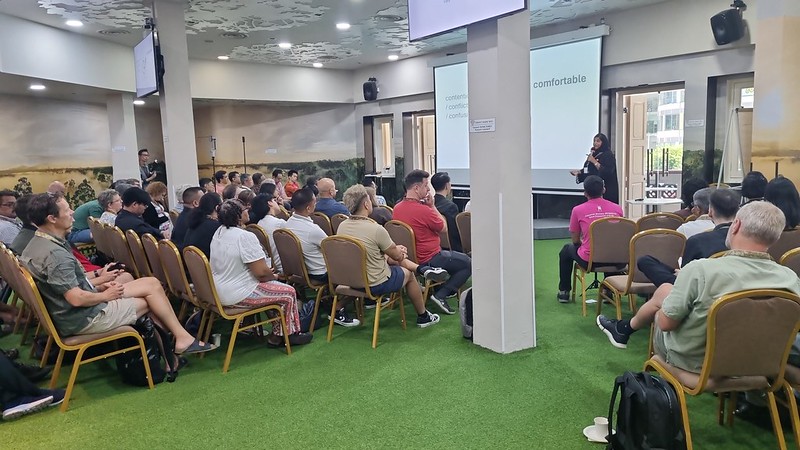
***
[5 min read]
The International Humanist Conference 2024 was held over three days from 30 Aug to 1 Sep 2024.
Singapore is the third Asian country to host a global Humanist event since the first World Humanist Congress began in 1952 in Amsterdam, Netherlands. In 1999, the World Humanist Congress was held in Mumbai, India. In 2015, the General Assembly was held in Manila, Philippines.
The theme for this year’s Conference is Secularism and Interfaith Harmony, with the Main Conference being held on the second day (31 Aug) at HUONE, an event space nestled in the vibrant Clarke Quay district. More than 100 participants from all around the world attended the conference, including about 80+ foreign delegates.
We are very grateful for Mr Kelvin Wan of K Pixel Photography for contributing photography for this historic event.
Opening Remarks
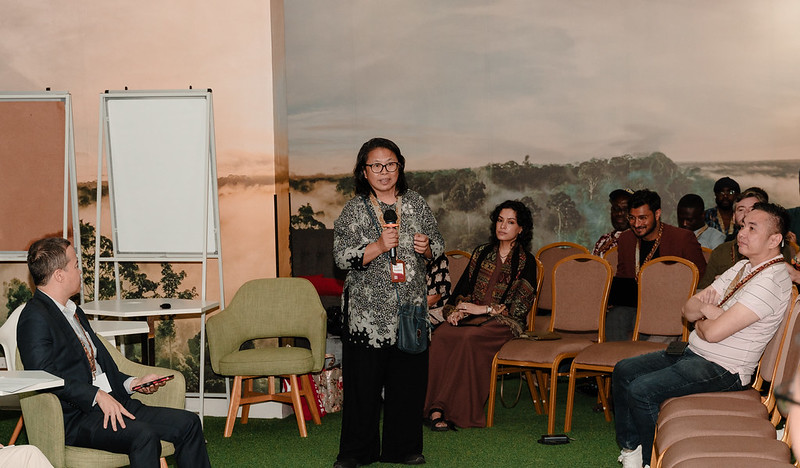
***
Ms Norhaiyah Mahmood (‘Nora’), Humanist Society (Singapore) President, gave an opening speech, welcoming delegates to the IHC. She said it was an honor to host this gathering as the President of the HSS and thanked everyone for their dedication to humanism. She briefly recapped the tours the day before (more info here) and explained that these tours underscored the conference’s theme of secularism and interfaith harmony, reminding us of the importance of mutual respect and dialogue.
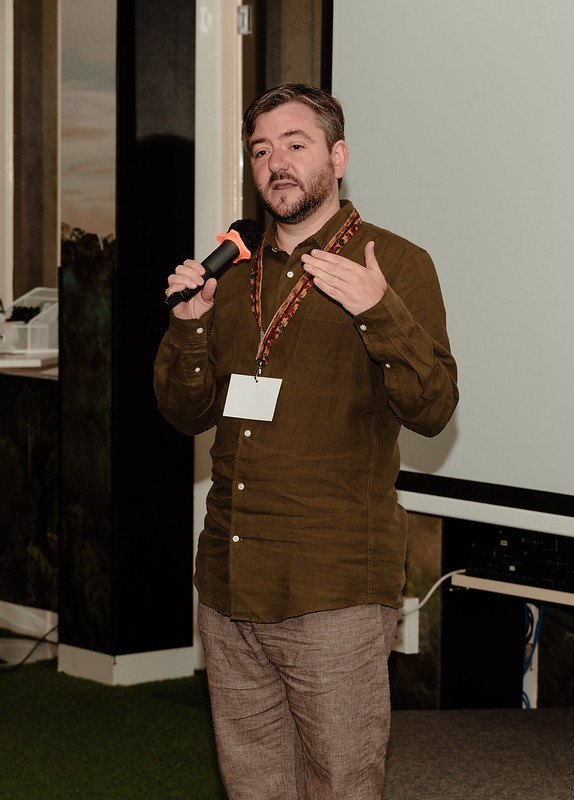
***
Next, Humanist International (HI) President, Mr Andrew Copson (above) gave his opening remarks. He expressed delight that the International Humanist Conference is here in Singapore for the first time, and he noted how the local SG humanist movement has gone from “strength to strength” since its early days 14 years ago.
Andrew said Singaporean Humanists have become a great inspiration for others in the region, encouraging them to organize and take bold steps. On the chosen theme of interfaith and secularism, Andrew said that humanists value personal choice and the right to pursue a good life without harming others, naturally leading to a more diverse world. Managing this diversity is essential, and secularism plays a key role in fostering common ground amid diversity.
Watch a video of the Nora’s and Andrew’s opening remarks here.
What followed was 6 presentations and 2 panel sessions, divided into morning and afternoon sessions.
Morning Session
Next up, there were 3 speakers in the morning.
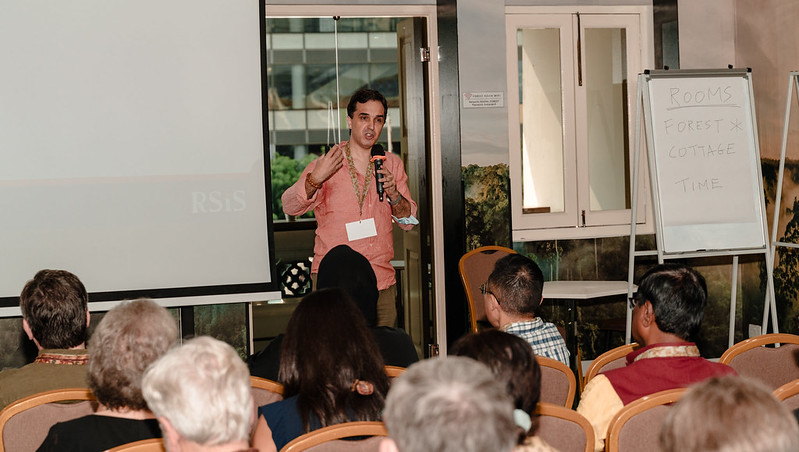
***
The first presentation is by Dr Paul Hedges (above), Associate Professor in Interreligious Studies in the Study of Inter-Religious Relations in Plural Societies at Nanyang Technological University. Dr Paul offered a framework for understanding the necessary types of dialogue to engage both groups. He clarified key terms such as “atheist” and “religious people” and differentiated interreligious dialogue from interworldview dialogue. Dr Paul emphasized that such dialogues are vital for addressing social cohesion, environmental concerns, and peacebuilding, especially in Singapore.
Watch a video of the speech here.
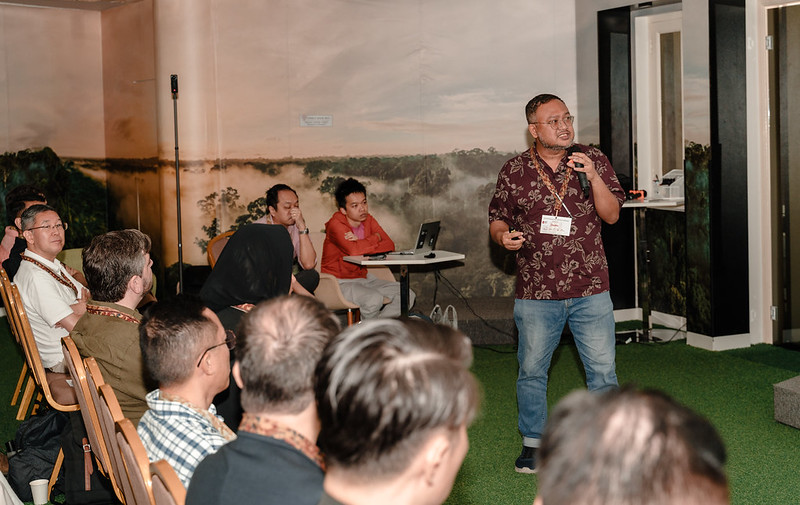
***
Mr Mohamed Imran Mohamed Taib (above), Founding Director, of Dialogue Centre, examined the phenomenon of “falling out” of religion and how attitudes towards faith are evolving globally, including in Singapore.
Imran concluded that improved dialogue between religious and non-religious individuals requires epistemic humility, reformed institutional leadership, and the protection of religious and non-religious freedoms through a democratic political culture.
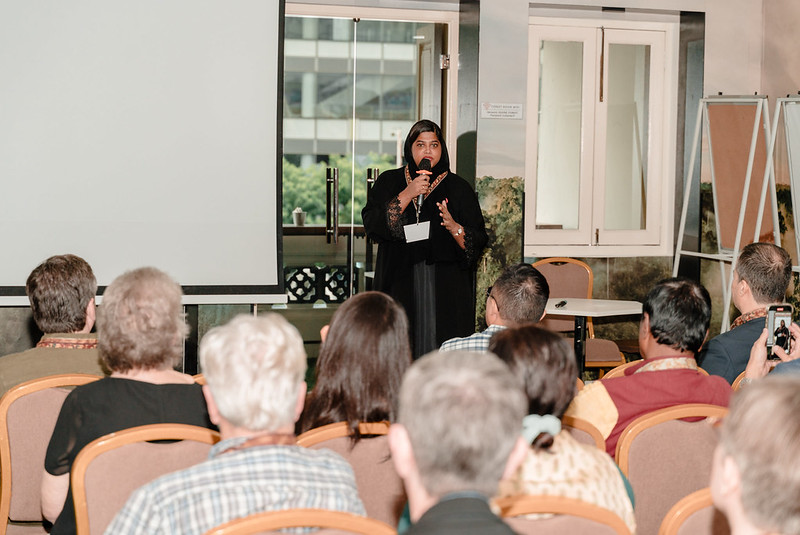
***
Ms Nazhath Faheema (above), Founder, Hash.peace shared personal encounters as a religious person with individuals identifying as atheist, agnostic, spiritual but non-religious, and non-religious.
Faheema emphasized the use of interfaith dialogue through the Trialogue method, which creates a “third space” for deeper understanding, breaking down binary oppositions. She also discussed the “temporary suspension of belief” technique, which allows for open, judgment-free dialogue, fostering empathy and common ground.
Watch a video of the speech here.
Panel Session #1
After the morning session, there was a panel session featuring the 3 morning speakers. The discussion revolves around how to build mutual respect and cooperation between the religious and the non-religious in an increasingly diverse society. The 1hr panel session can be viewed here:
After the panel, the delegates enjoyed a delicious lunch and engaged in networking.
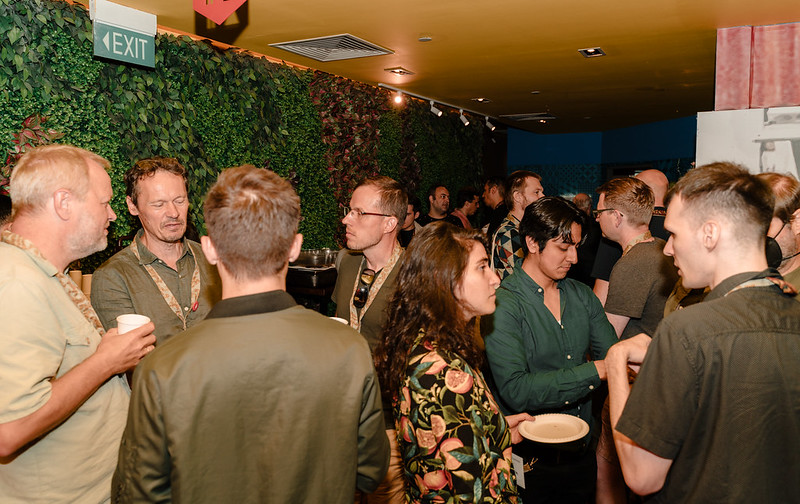
***
Afternoon Session
After lunch, there were 3 more speakers.
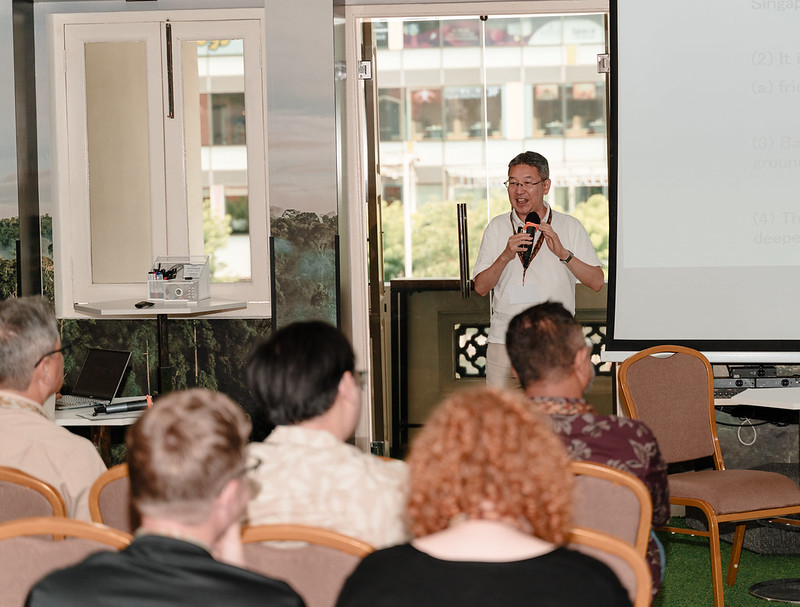
***
Dr. Ichioka Takashi (above) presented his research on interracial and interfaith relations in Singapore since 2013, identifying two main approaches: friendship building and dialogues. Friendship building involves organizing race and faith-based events, such as Iftar and the Dumpling Festival, where leaders foster mutual friendships.
However, opportunities for mingling beyond community leaders are limited. Dialogues, in contrast, bring together people from various backgrounds to discuss sensitive topics in a civil manner, fostering deeper mutual understanding.
Dr. Ichioka emphasized that both methods are important: friendship-building events increase participation at the community level, while dialogues deepen understanding. He concluded that interfaith activities should combine both approaches to enhance the breadth and depth of interfaith relations.
Watch a video of the speech here.
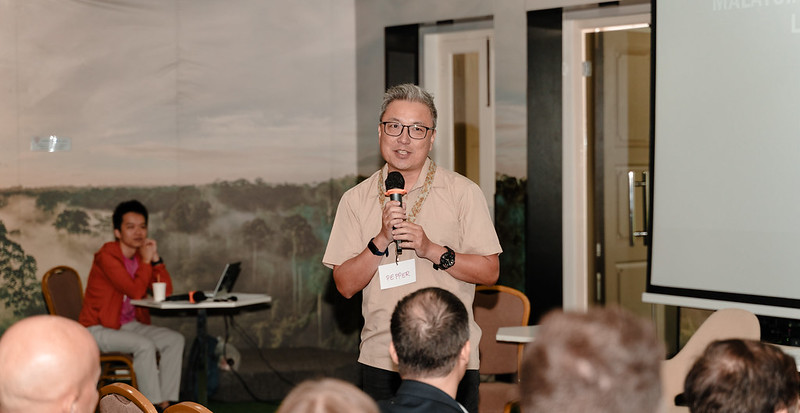
***
Next, there was a heartfelt sharing from Dr Pepper Lim (above), Senior Manager, Educator and Author, about his experience in Malaysia. Dr. Lim went through the history of Malaysia, including the tensions between the three major races (Malay, Chinese, Indian), his experience with Malay culture, and the growing Islamic religious conservatism in Malaysia, where Islam is synonymous with the racial identity of being a Malay. He also shared his views on the impact of conservatism on freedom of expression, religious pluralism, and the rights of minorities in Malaysia.
Watch a video of the speech here.
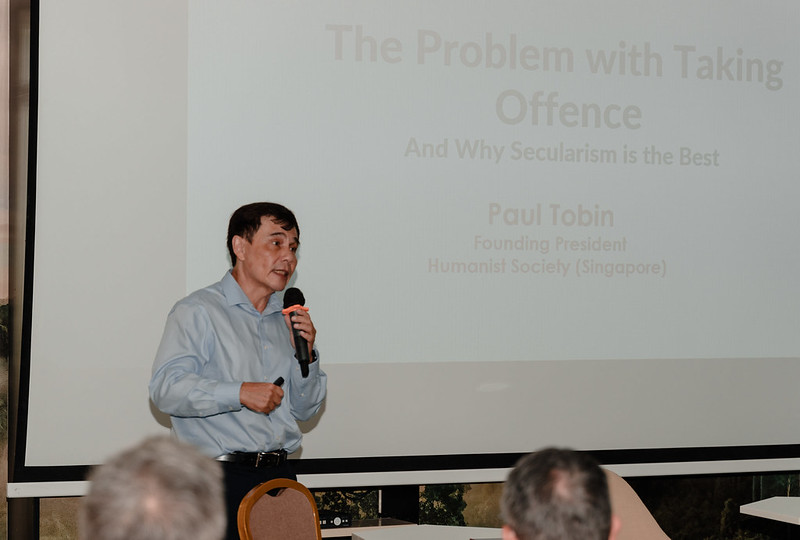
***
Mr Paul Tobin (above), founding President of the Humanist Society (Singapore), addressed the issue of offence-taking in his speech. He highlighted the challenges humanists face in religious environments, where the non-belief aspect of humanism often creates tension. Tobin posed three key questions:
- Can offence be avoided?
- Should it be avoided?
- And can one be free from being offended?
He argued that offence-taking can be used strategically to halt discussions, as it garners sympathy and silences criticism. Tobin urged people to develop thicker skins, as the offence is inevitable, and to reject retaliation. He called for rethinking the concept of “respecting each other’s beliefs,” advocating instead for respecting the right to hold different beliefs or non-beliefs. This, he argued, is key to fostering tolerance.
Watch a video of the speech here.
Panel Session #2
The 2nd Panel session discusses: How can we better engage and protect non-religious individuals at risk?
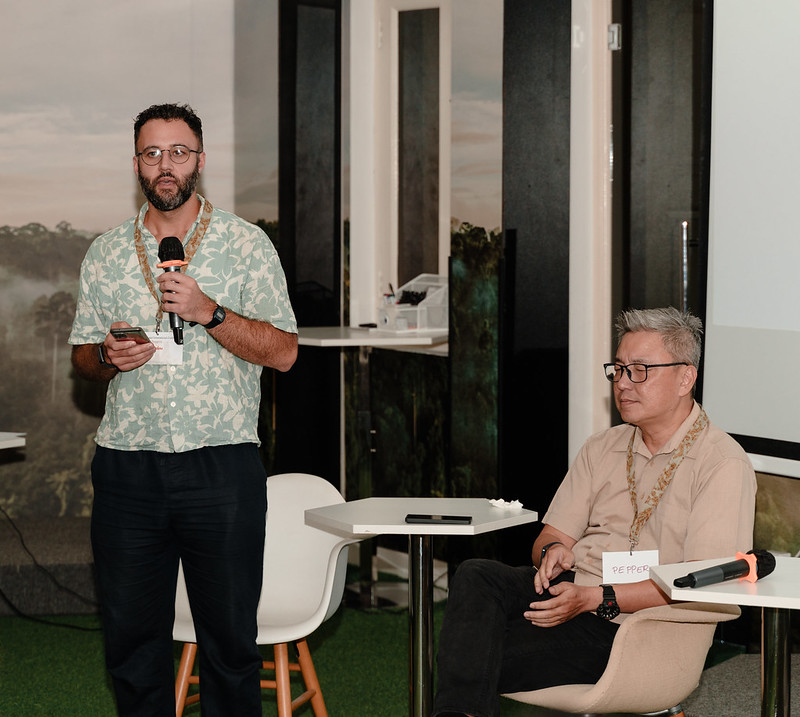
Mr Gary McLelland (above), HI Chief Executive, shared about The Humanists at Risk programme by Humanists International (HI). Gary shared there are 3 domains:
- Personal domain: HI supports individual humanists facing prosecution for their beliefs. Last year alone, 163 people reached out for help, including monetary support, legal aid, and assistance with asylum—a significant challenge for a small organization.
- Social domain: While HI is effective in supporting persecuted individuals, there is a need to build stronger communities around them, especially for those relocating to the West who face difficulties integrating. Creating a community that provides ongoing support is vital.
- Policy and legal domain: HI advocates for freedom of religion or belief at institutions like the UN, a contentious issue in many parts of the world where non-religious individuals are often marginalized.
Addressing humanist challenges requires efforts in all three domains, as no single aspect can solve these complex issues alone.
The rest of the 2nd panel session (50mins) can be viewed here:
The Main Conference concluded around 530pm with delegates heading off for the Dinner at V Hotel Lavender.
Appreciation to HUONE
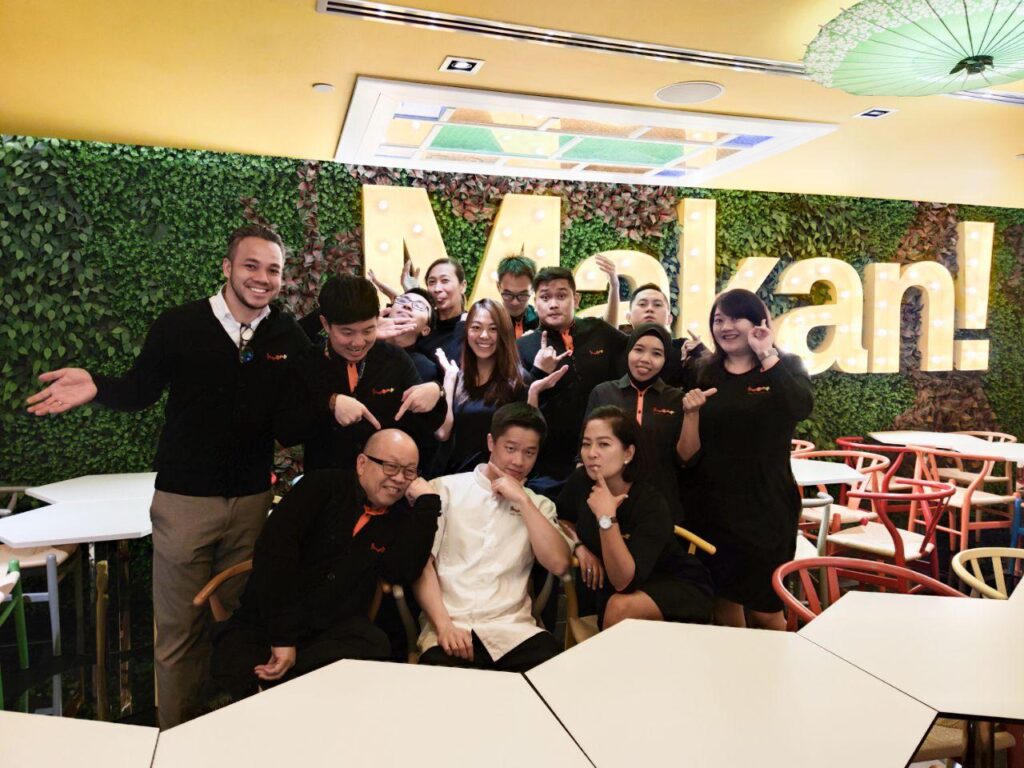
***
For a successful event, the location and venue play a crucial role, and HUONE exceeded our expectations in every way. The staff at HUONE were not only courteous and friendly but also incredibly accommodating, even when we had some last-minute requests.
Their professionalism and willingness to go the extra mile made a significant difference in the overall experience. We truly appreciate their support and dedication, which contributed to the success of our event.




